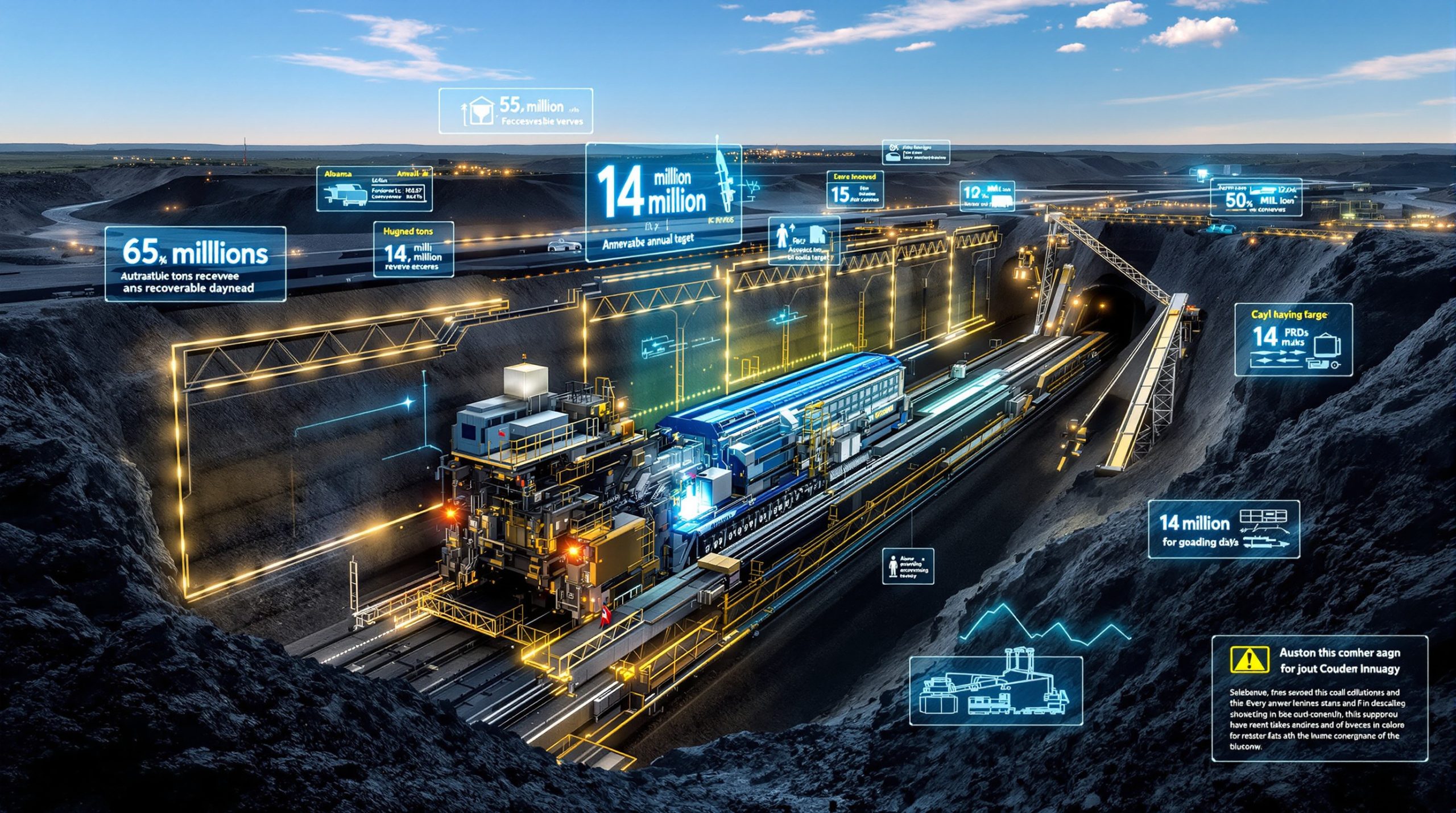Zimbabwe's Mineral Wealth Takes Centre Stage at Inaugural Summit
Zimbabwe's inaugural Mining and Energy Sunrise Summit has positioned the nation as a critical player in global mineral supply chains, showcasing the country's extraordinary geological diversity and commitment to sustainable resource development. The zimbabwe mining sunrise summit brought together government officials, private sector executives, and international stakeholders to address the challenges and opportunities facing Zimbabwe's extractive industries. Furthermore, the event demonstrated how the country's mineral endowment aligns with global trends in the critical minerals energy transition.
The zimbabwe mining sunrise summit highlighted the nation's strategic importance in meeting global demand for critical minerals, particularly those essential for clean energy transitions. With substantial reserves spanning multiple commodity categories, Zimbabwe is actively working to transform its mining sector through legislative reforms, infrastructure development, and community-focused initiatives.
Strategic Mineral Resources Driving Global Interest
Zimbabwe possesses remarkable mineral endowment that positions it advantageously in international markets. The country holds the world's second-largest platinum group metals deposits, establishing it as a cornerstone supplier for automotive catalytic converters and industrial applications. This geological advantage extends across multiple critical minerals that are increasingly vital for modern technologies.
Zimbabwe's Key Mineral Assets:
- Platinum Group Metals: Second-largest global deposits with significant untapped potential
- Chrome Ore: Top-tier global supplier serving stainless steel manufacturing
- Lithium: Substantial reserves positioned for battery technology markets
- Graphite: High-grade deposits suitable for electric vehicle battery anodes
- Vanadium: Growing reserves targeting energy storage applications
- Gold: Historical production anchor providing economic stability
- Copper: Essential reserves for electrical infrastructure development
The convergence of these minerals within Zimbabwe's borders creates unique opportunities for integrated mining operations and value-added processing. Unlike many mineral-rich nations that focus on single commodities, Zimbabwe's diversity provides natural hedging against market volatility whilst supporting multiple industrial applications.
Market dynamics favour Zimbabwe's mineral portfolio particularly strongly. The global transition toward electrification and renewable energy has elevated demand for battery metals, whilst traditional industrial applications for platinum group metals and chrome continue expanding. Consequently, this dual market pull positions Zimbabwe to benefit from both established and emerging commodity cycles, particularly as investors seek junior mining investments in strategic minerals.
Government Reforms Reshaping Investment Climate
Legislative overhauls have fundamentally transformed Zimbabwe's mining investment environment, addressing historical regulatory uncertainties that previously deterred capital deployment. The government's comprehensive review of mining legislation has created clearer frameworks for both domestic and international investors seeking opportunities in the sector.
Deputy Minister of Mines and Mining Development Hon. Polite Kambamura emphasised the government's strategic focus on public-private partnerships that simultaneously develop infrastructure and benefit local communities. This approach represents a significant shift from previous policies that often prioritised resource extraction without adequate consideration for social impact or long-term development.
Reformed Investment Framework Elements:
- Streamlined Permitting: Reduced bureaucratic delays in project approvals
- Legal Certainty: Clear ownership structures and dispute resolution mechanisms
- Community Benefits: Mandatory local development contributions
- Infrastructure Incentives: Tax advantages for projects supporting regional development
The reforms specifically target transparency improvements in licensing procedures, creating standardised timelines for permit applications and establishing appeal processes for disputed decisions. These changes address investor concerns about regulatory predictability whilst maintaining government oversight of resource development.
Investment protection measures now include bilateral investment treaties with key partner countries, providing additional security for international capital. Moreover, the government has established dedicated investment facilitation units within relevant ministries to guide investors through regulatory requirements and coordinate inter-agency approvals.
What Makes Zimbabwe's Mining Reforms Distinctive?
The reforms stand out for their comprehensive approach to stakeholder engagement and community benefit requirements. Rather than focusing solely on investor incentives, the framework balances commercial interests with social development objectives, creating sustainable foundations for long-term sector growth.
Beneficiation Strategy Creates Local Value Addition
Zimbabwe's beneficiation strategy represents a fundamental shift from raw material exports toward domestic value addition and industrial development. Rather than simply extracting and shipping commodities, the country actively encourages downstream processing that creates employment opportunities and captures additional economic value within national borders.
The approach recognises that mineral wealth can serve as a foundation for broader industrialisation if properly managed. By processing raw materials domestically, Zimbabwe aims to develop technical expertise, create skilled employment, and reduce dependence on commodity price volatility that affects raw material exporters. These mineral beneficiation opportunities provide a template for value-added mining development across the region.
H.E. Bridgette Motsepe, Ambassador of Economic Development at the Pan-African Parliament, highlighted that "skills development and beneficiation initiatives are essential to ensure Zimbabwe's mineral resources provide broad-based benefits for all citizens". This perspective emphasises the social dimensions of resource development beyond purely economic considerations.
Beneficiation Priority Areas:
- PGM Refining: Establishing facilities to process platinum group metals into refined products
- Chrome Processing: Developing ferrochrome production for steel industry supply
- Lithium Processing: Battery-grade lithium compound manufacturing
- Graphite Purification: High-purity graphite for specialised battery applications
- Gold Processing: Jewellery manufacturing and industrial gold applications
The beneficiation strategy extends beyond individual mineral processing to encompass integrated value chains. For instance, chrome ore processing can supply domestic steel production, which in turn supports construction and manufacturing sectors. This interconnected approach maximises the multiplier effects of mineral development throughout the economy.
Technical capacity building accompanies beneficiation initiatives, with programmes designed to develop local expertise in advanced processing technologies. This includes partnerships with international technology providers, training programmes for technical personnel, and research collaborations with academic institutions.
Infrastructure Development Addressing Critical Gaps
Infrastructure constraints have historically limited Zimbabwe's mining sector growth, creating bottlenecks in production, processing, and export capabilities. The zimbabwe mining sunrise summit provided a platform for addressing these challenges through collaborative solutions between government entities and private sector participants.
Mayor Jacob Mafume of Harare emphasised the critical importance of bringing stakeholders together to discuss infrastructure challenges that affect mining operations and identify practical solutions. The summit created opportunities for mining companies, infrastructure developers, and government agencies to coordinate investment priorities and implementation strategies.
Infrastructure Priority Categories:
| Infrastructure Type | Current Challenges | Development Focus |
|---|---|---|
| Transportation | Limited rail capacity, road maintenance | Railway modernisation, logistics optimisation |
| Energy Supply | Power reliability concerns | Grid stability, renewable integration |
| Water Systems | Processing facility requirements | Treatment capacity, distribution networks |
| Communications | Remote area connectivity | Digital infrastructure expansion |
Transportation infrastructure receives particular attention due to Zimbabwe's landlocked geography and dependence on regional corridors for mineral exports. Railway modernisation projects aim to increase capacity and reduce transportation costs, whilst road improvements support mine-to-port logistics.
Energy infrastructure development encompasses both reliability improvements and renewable energy integration. Mining operations require consistent power supply for processing equipment and safety systems, making grid stability essential for operational continuity. Solar and wind projects are increasingly viewed as viable supplements to traditional power generation.
Water infrastructure supports both mining operations and community needs, with integrated planning ensuring adequate supplies for industrial processing whilst maintaining access for domestic and agricultural uses. Treatment facilities help manage environmental impacts whilst creating opportunities for water recycling and conservation.
How Does Infrastructure Impact Mining Viability?
Infrastructure quality directly affects mining project economics through transportation costs, energy reliability, and operational efficiency. Improved infrastructure reduces operational expenses whilst enabling access to previously uneconomical deposits, particularly important as the mining industry evolution emphasises cost-effective resource development.
Clean Energy Transition Amplifies Mineral Demand
The global shift toward clean energy technologies has fundamentally altered demand patterns for Zimbabwe's critical minerals, creating unprecedented opportunities for strategic resource development. Battery technologies, renewable energy infrastructure, and electric vehicle manufacturing all require minerals that Zimbabwe possesses in significant quantities.
Zimbabwe's mineral portfolio aligns closely with clean energy transition requirements, positioning the country to benefit from structural demand growth rather than cyclical market fluctuations. This transition represents a multi-decade trend that could provide sustained revenue streams for properly developed mineral projects.
Clean Energy Mineral Applications:
- Lithium: Electric vehicle batteries, grid storage systems, portable electronics
- Graphite: Battery anodes, fuel cell components, advanced materials
- Vanadium: Flow batteries for grid-scale energy storage
- Copper: Electrical wiring, renewable energy infrastructure, charging systems
- Platinum: Hydrogen fuel cells, catalytic applications
Market forecasts suggest demand for these minerals will grow exponentially over the next two decades as countries implement climate commitments and electrification programmes. Unlike traditional industrial demand that follows economic cycles, clean energy demand is driven by policy mandates and technological adoption curves that provide greater predictability for long-term planning.
Zimbabwe's advantage extends beyond simple resource endowment to include geological characteristics that affect extraction economics. High-grade deposits with favourable mineralogy can support competitive production costs, whilst proximity to existing infrastructure reduces development expenses compared to remote locations.
Additionally, the country's position in southern Africa provides logistical advantages for serving both domestic beneficiation and export markets. Regional infrastructure development supports multiple supply chain options, reducing dependence on single transportation corridors that could create vulnerabilities. This positioning becomes particularly relevant as analysts examine gold price forecast trends and precious metals demand patterns.
Multi-Stakeholder Collaboration Models Emerge
The zimbabwe mining sunrise summit successfully facilitated dialogue between traditionally separate stakeholder groups, creating innovative partnership frameworks that could accelerate sector development. This cross-sector engagement addresses the reality that modern mining projects require coordination between government agencies, private companies, and community organisations, as highlighted in recent mining summit developments.
Government Participation Framework:
- Policy development and regulatory oversight coordination
- Infrastructure investment planning and resource allocation
- International trade facilitation and market access support
- Environmental and social standard implementation
Private Sector Engagement:
- Technical expertise and operational knowledge sharing
- Capital deployment and project financing capabilities
- Market analysis and distribution network access
- Technology transfer and innovation implementation
Community Integration:
- Local development priority identification and planning
- Environmental protection advocacy and monitoring
- Employment and training programme design and delivery
- Cultural and social impact assessment participation
The collaborative approach recognises that sustainable mining development requires balancing multiple objectives and stakeholder interests. Rather than viewing these as conflicting priorities, the summit framework treats them as complementary elements that strengthen overall project viability.
Institutional mechanisms emerging from the summit include joint working groups addressing specific challenges, regular stakeholder forums for ongoing dialogue, and collaborative monitoring systems for tracking progress on shared objectives. These structures provide continuity beyond individual mining projects to support sector-wide development.
Human Capital Development Shapes Sector Future
Skills development emerged as a fundamental requirement for realising Zimbabwe's mining potential, with summit participants recognising that human capital constraints could limit the sector's growth regardless of geological endowment or policy reforms. The country's mining future depends critically on developing local expertise across technical, operational, and management disciplines.
Current workforce challenges include shortages of qualified mining engineers, equipment operators, environmental specialists, and safety professionals. These gaps affect both operational efficiency and compliance with international standards that govern modern mining operations.
Priority Training Areas:
- Mining Engineering: Geological assessment, mine planning, extraction optimisation
- Equipment Operation: Heavy machinery operation, maintenance, safety protocols
- Environmental Management: Impact assessment, remediation, monitoring systems
- Business Development: Local supplier development, entrepreneurship, financial management
Educational partnerships with technical institutions and universities provide pathways for systematic skills development, whilst international cooperation programmes offer access to advanced training and certification standards. These initiatives aim to create sustainable capacity rather than dependence on expatriate expertise.
Local supplier development programmes complement technical training by creating opportunities for Zimbabwean businesses to participate in mining value chains. This includes everything from specialised services to equipment supply, creating broader economic benefits beyond direct mining employment.
The skills development strategy also encompasses management and entrepreneurial capabilities, recognising that successful mining development requires local leadership and business development capacity. This includes financial literacy, project management, and market analysis skills that support both individual career development and broader economic participation.
Why Is Local Skills Development Crucial?
Local expertise development ensures knowledge transfer remains within Zimbabwe, creating sustainable capacity for ongoing sector growth. Furthermore, locally trained professionals understand regional conditions and cultural contexts, improving project implementation effectiveness whilst reducing operational costs compared to expatriate personnel.
Investment Landscape Presents Diverse Opportunities
Zimbabwe's mining sector offers investment opportunities across different development stages and commodity categories, providing entry points for various investor profiles and risk tolerances. The improved regulatory environment and infrastructure development initiatives create a more attractive climate for both exploration and production investments, particularly as strategic mining partnerships continue to develop.
Exploration Stage Investments:
- Early-stage mineral discoveries requiring resource definition
- Geological survey partnerships and data acquisition programmes
- Technology applications for exploration efficiency improvements
- Joint venture opportunities with local exploration companies
Development Stage Opportunities:
- Mine construction and infrastructure development projects
- Processing facility design and construction investments
- Transportation and logistics infrastructure partnerships
- Community development and social infrastructure initiatives
Operational Enhancement:
- Existing mine capacity expansion and optimisation projects
- Technology upgrade programmes for efficiency improvements
- Environmental and safety system modernisation initiatives
- Beneficiation facility development and integration
Risk-return profiles vary significantly across these categories, with exploration investments offering higher potential returns but greater uncertainty, whilst operational enhancements typically provide more predictable outcomes with moderate return expectations. The diversity allows investors to construct portfolios aligned with their specific objectives and risk tolerances.
International financing options include development finance institution support, commercial banking facilities, and equity partnerships with established mining companies. The improved regulatory environment makes these financing sources more accessible than in previous periods when regulatory uncertainty deterred international capital.
Vision 2030: Transformational Mining Sector Goals
The zimbabwe mining sunrise summit participants outlined ambitious objectives for transforming the country into a major African mining destination by 2030. This vision encompasses production increases, value addition expansion, technology adoption, and sustainable development integration across the entire sector.
The 2030 targets reflect realistic assessments of Zimbabwe's potential whilst acknowledging the investments and reforms required to achieve transformational growth. Success depends on sustained implementation of policy reforms, infrastructure development, and skills building initiatives discussed at the summit.
Production Enhancement Targets:
- Increased PGM output to meet growing global demand from automotive and industrial applications
- Expanded lithium production positioned for battery market growth and electric vehicle adoption
- Enhanced gold mining efficiency through technology adoption and operational optimisation
- Chrome ore processing capacity development for domestic beneficiation and export competitiveness
Value Addition Objectives:
- Local beneficiation facility development across multiple commodity categories
- Skilled workforce expansion through education and training programme implementation
- Technology transfer programmes establishing domestic technical capabilities
- Export diversification initiatives reducing dependence on raw material sales
The vision emphasises sustainable development principles, ensuring that mining sector growth contributes to broader social and economic development whilst maintaining environmental stewardship. This includes community benefit programmes, environmental restoration initiatives, and transparent revenue management systems.
Implementation success requires continued collaboration between government, private sector, and community stakeholders, building on the partnerships and dialogue mechanisms established through the zimbabwe mining sunrise summit. Regular progress monitoring and adaptive management approaches will help ensure the vision remains achievable and relevant as conditions evolve.
Disclaimer: This article contains analysis of mining sector developments and government policy initiatives. Readers should conduct independent research and seek professional advice before making investment decisions. Market conditions, regulatory environments, and economic factors can change and may affect the viability of mining investments and sector developments discussed herein.
Ready to Capitalise on Africa's Mining Renaissance?
Discovery Alert's proprietary Discovery IQ model delivers real-time notifications on significant ASX mineral discoveries, ensuring subscribers stay ahead of emerging opportunities as global demand for critical minerals accelerates. Explore historic examples of major mineral discoveries and their exceptional market returns, then begin your 30-day free trial today to secure your competitive advantage in this rapidly evolving sector.




